Reasonable doubt: why sex abuse convictions are being overturned
Michael Xu lost five years of his life after a fellow student’s complaint about their sexual encounters. His conviction, like that of George Pell, points to a trend.
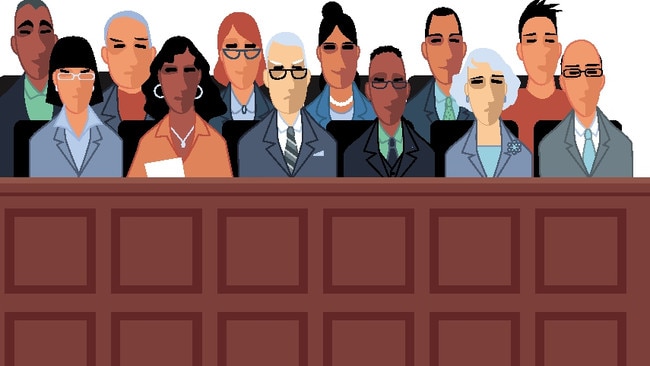
Among the many shocking accounts of church sexual abuse that have been heard in recent years, the story one man outlined to police in the Victorian city of Geelong in September 2015 was particularly horrific. A former student at the local Catholic college St Joseph’s, the fragile 61-year-old remembered one teacher there as a sexual sadist who had violently raped him on more than a hundred occasions in the 1960s, beginning when he was just 10. The man he identified as his attacker was the school’s now-retired Grade 6 teacher, Brother John Tyrrell of the Christian Brothers.
The shameful history of the Christian Brothers was by then well known, and only four months earlier it had been aired again when the Royal Commission into institutional abuse held public hearings in Ballarat. The Catholic Church has paid out more than $200 million to victims of the Christian Brothers, and St Joseph’s in Geelong had harboured its share of offenders, including the notorious Robert Best, jailed for offences against more than 30 young boys at various Catholic schools. These latest allegations, from a man we will call Alan Francis*, appeared to add another terrible chapter to that history.
Francis told police that in early 1965, when he was in primary school, his mother had asked Tyrrell to provide him after-hours tuition, hoping it would stabilise her son after the recent death of his grandfather. The following week, at the very first of these after-school meetings, he said Tyrrell had bent him over a classroom desk and raped him while muffling his screams, warning: “No one will believe you, just take your punishment.” These violent and degrading attacks, Francis said, had occurred precisely 142 times over the ensuing three and a half years, taking place in the school hall, science room, garage and sports change-rooms.
The case was passed to the SANO Task Force in Melbourne, the specialist child abuse unit that was then investigating scores of alleged church offenders, among them Cardinal George Pell. But the officer in charge, Detective Senior Constable Robert Galtieri, ran into problems almost immediately. Alan Francis described being raped with savage regularity from 1965 to the end of 1968, and said it wasn’t until Easter 1969 that he felt strong enough to tell Tyrrell to “f..k off”. But Brother John Tyrrell had left St Joseph’s in 1966. And the gravestone of Alan Francis’s grandfather revealed he had died in 1968, which undermined the story of why after-school tuition was needed.
Many witnesses to events had died in the intervening 50 years, including Francis’s mother, although his sister, brother and a cousin were all still alive. The latter two had attended St Joseph’s, but Detective Galtieri chose not to interview any of them, explaining later in court that he could see no point. “You could ask people anything…where does it take it?” the detective said. Instead, Galtieri prepared a revised statement from Francis that made no mention of being assaulted after 1966 or his grandfather’s death. The detective interviewed a handful of former students but they remembered nothing salient; he spoke to John McCabe, a Christian Brother who Francis claimed had walked in on one of the rapes, but McCabe denied this had ever happened. In March 2017, Tyrrell appeared in court charged with 32 counts of child sexual abuse.
Unlike some of his fellow brothers, Tyrrell had a clean record. After leaving St Joseph’s he had worked for 17 years as a teacher and principal at various Catholic schools in Victoria, then become an aged care worker until his retirement in 2010. He was nearly 80 and partially blind from a stroke 20 years earlier. His accuser had endured a far more blighted life. As a child Alan Francis had suffered drunken beatings from his father. In 1976 he had pleaded guilty to manslaughter and robbery, and in 1995 he had pleaded guilty to shooting a man in the arm. On both occasions he had revealed his violent family background to his lawyers but made no mention of being sexually abused.
At Tyrrell’s trial in the County Court in April 2018, Francis’s testimony was the prosecution’s only evidence of the alleged assaults. Under cross-examination he agreed that the rapes he remembered after 1966 must have been products of his imagination; he explained that his false memory of events in 1969 – telling Tyrrell to “f..k off”, and as a result being harshly punished until he was expelled – may have been sparked by a nightmare. “I [have] been suffering… all my life since from a series of bad nightmares, and in one of them that’s recurring… I told him to f..k off,” he said.
Tyrrell testified that he had no memory of Alan Francis, had never provided after-school tuition at St Joseph’s and never had keys to the rooms where the rapes allegedly occurred. Denying the allegations, he said: “I never, ever, did a thing like that at that time or any other time.” A colorectal surgeon called by the defence testified that the extreme violence described by Francis would likely have caused serious internal injuries, for which there was no evidence. The jury found Tyrrell guilty of four counts of buggery and six of indecent assault, and he was sentenced to 11 years in prison.
Eleven months after he went to jail, Tyrrell was acquitted in March last year by the Court of Appeal, which described aspects of the prosecution case against him as improbable, “if not impossible”. Tyrrell’s solicitor, Peter Mihailidis, sees the case as a disquieting example of the way police, prosecutors and juries are today responding to historical sexual assault allegations involving church figures. “In all my career I have never felt so strongly about a client’s innocence,” says Mihailidis, who believes outrage over the revelations of the royal commission has placed police and prosecutors under enormous pressure to proceed with even the shakiest cases. “My view is that, in the current climate, defendants have a strong chance of being convicted in these cases whether they are guilty or not. It takes a brave prosecutor to say, ‘This doesn’t add up’. The prevailing attitude seems to be to prosecute and let the courts sort it out, but many juries are making decisions based on emotion and preconceptions, not evidence or facts.”
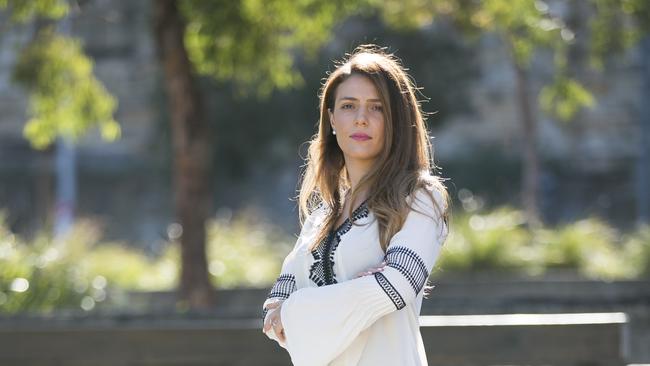
It’s a view shared by many criminal lawyers, who say the problem is not confined to historical or church cases. Solicitor Carol Younes cites the wrongful conviction of her client “IW”, a 67-year-old NSW man who spent 13 months in prison before the NSW Court of Criminal Appeal acquitted him last year. The case rested on the testimony of a 15-year-old girl who briefly lived with IW and his family as a six-year-old, and told police he had violently raped her multiple times. In court the girl’s Facebook messages showed she had made the allegations for “fun” at the prompting of an aunt, and admitted she could “barely remember” IW. No medical evidence supported the girl’s claims, and her records showed she had enjoyed living with the family so much that she cried when taken away to live with her aunt at age seven. A jury found IW guilty of both counts of raping a child under 10 and he was sentenced to nearly nine years’ jail.
“There is a genuine growing concern that defendants in sexual assault cases do not really enjoy the presumption of innocence,” says Younes, adding that when prosecutors pursue cases that don’t meet the criminal standard of proof, there is “a very significant cost to the defendant and to the community”. In IW’s case, he spent more than three years fighting the charges, was forced to sell his home to pay his $300,000 legal bill and endured 13 tough months in prison as a convicted paedophile. “It feels like half of what I worked for over my lifetime has been lost,” he says. In their lengthy acquittal decision, the appeals judges noted that the accuser’s reliability was open to doubt and that she had made her allegations in a “flippant” manner at the instigation of her aunt.
The case is one of five from the last half of 2019 in which NSW appeals court judges overturned jail sentences because of significant doubts about the reliability of the prosecution’s case and the soundness of the jury’s reasoning. In three cases, the alleged victims’ accounts were contradicted by their own text and social media records. In another, a 39-year-old Sydney man was sentenced to four years’ jail after a brother and sister who were once his childhood neighbours went to police because of “flashbacks” and suppressed memories of him allegedly raping them repeatedly over an eight-year period. The appeals judgment described the unsupported allegations as unreliable and at times “simply fantastic in the literal sense”.
The defence lawyer in that case, Sydney solicitor Ron Malouf, says the case is one of a number that have caused him serious misgivings in recent years. It consumed four years of his client’s life, including two aborted trials, and the trial judge expressed “real concerns” about the jury’s verdict. “Like everyone, I don’t want sexual offenders at large in the community,” says Malouf. “But this blanket approach of assuming allegations are true, no matter how flawed or vexatious they may be, is creating a lot of unfairness for the accused. Juries, from my experience, seem to struggle with the fundamental concept of reasonable doubt.”
It’s a point of view that gets short shrift from victim advocates such as Judy Courtin, a Melbourne lawyer who represents survivors of abuse. Courtin points out that the vast majority of sexual assaults are never reported to police and many victims find the justice system a protracted and punishing process. “The bottom line is that there is a disinclination to go to police and those who do must contend with very low conviction rates, a high rate of appeal and the secondary trauma of being cross-examined,” she says.
Professor Judy Cashmore of Sydney University, who has been researching sexual assault in the courts for more than three decades, echoes those remarks. “The courts have never been a level playing field for children,” Cashmore says. “They still face misconceptions about why they didn’t report their abuse immediately, and are questioned in complex legalese about the reliability of what they’re saying.” As recently as 1984, she points out, the future High Court judge Dyson Heydon wrote a legal textbook which posited that children can sometimes be “evil” and “consent to sexual offences against themselves and then deny consent, and completely invent sexual offences”.
Debate about the reliability of children’s testimony is just one among many issues that have made sexual assault cases such a contentious area. The incidence of adults making malicious allegations is believed to be very low, but historical abuse allegations can be fraught with issues of how memory can be distorted by trauma, counselling techniques, contamination from other sources or the simple erosions of time. Rape cases often pivot on conflicting accounts of consent from the only two people who know the truth.
There is little dispute that police in the past were poorly trained for these investigations and defence lawyers often subjected victims to harsh and humiliating questions. Major reforms to state laws have sought to address those issues since the 1980s: a complainant’s sexual history and confidential counselling records are generally off-limits, and most now give their evidence remotely via CCTV, often in hearings closed to the media and public; the definition of consent has been revised and several states now provide witness “mediators” for children and witnesses with mental health issues.
Yet the conviction rate in these cases remains stubbornly lower than for other violent crimes. In the NSW District Court, 62.5 per cent of child sex assault trials last year ended in conviction, only marginally above the mean average over the past 12 years; in adult cases it was virtually unchanged at 47.6 per cent. The County Court of Victoria reports that a surprisingly high 83 per cent of all child sexual assault cases – including guilty pleas – ended in convictions, but that was again only marginally higher than the average over the past decade.
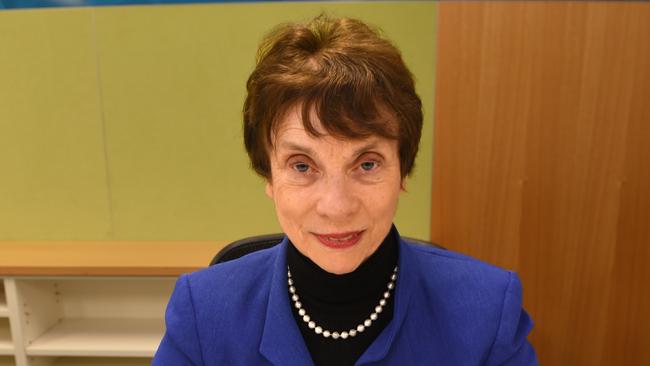
Marcia Neave, a former Victorian Supreme Court judge who chaired a major state government inquiry into sexual assault law reform in 2003-04, has expressed disappointment with the impact of reforms and publicly advocated for alternative justice approaches such as offender- victim conferencing. Neave, who retired from the bench in 2015 and is now chair of the legal assistance organisation Justice Connect, cautions against reading too much into the anecdotal reports of defence lawyers. She does not recall a rising incidence of questionable cases in her time as an appeals judge but acknowledges that prosecutors are today pursuing historical matters that in the past would not have reached trial. “On the one hand you could say that’s a good thing,” she says. “It might not be a good thing if they are being prosecuted unsuccessfully. However, it is distressing for the victims of old offences if those who offended against them are not successfully prosecuted.”
One significant reform in recent decades has been the teaming of police with social workers and sexual assault counsellors. But defence lawyers say that in the process police may adopt an unquestioning attitude that could be antithetical to proper investigatory procedures. In 2018 a senior Victorian sex crimes investigator, Detective Senior Sergeant Craig Gye, was asked on the SBS program Insight whether he always presumed a rape complainant’s story was true. Gye replied: “Absolutely – to presume otherwise would be playing into that myth that people make these stories up. And it’s a myth.”
In May, the NSW government paid an undisclosed settlement to a Sydney man who spent a month in jail after police and prosecutors pursued rape allegations by his estranged wife, despite CCTV and text evidence contradicting her claims. The man, who can’t be named, says a police commander told him: “It’s our job to believe the victim and let the courts decide.” John Sutton, a former NSW police prosecutor who is now a solicitor in private practice, says he has heard that rationale with increasing frequency, most egregiously in a recent case involving a young Chinese student.
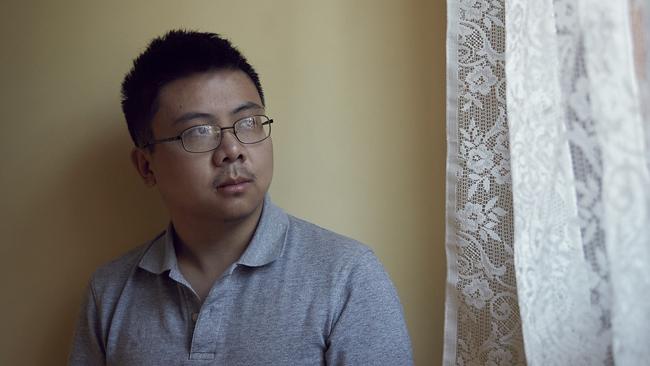
Michael Xu was working his regular job behind the counter of a convenience store in Wollongong in November 2017 when two plainclothes police officers came to see him. It was a casual conversation, recalls Xu, at that time a 21-year-old computer science student. The cops suggested he drop by Wollongong Police Station next morning to discuss an incident that had happened with his friend from university, Ryan Jones*.
Xu, who is gay, had an idea what that incident might be – his friendship with Jones had come to a messy end three months earlier after the pair allegedly became intimate on two successive weekends in his bedroom, in the flat he shared with three other students. After the second weekend, Ryan had told Xu he did not want to pursue a sexual relationship, and a distraught Xu had visited his house and been chased off by his friend’s mother and her boyfriend, who called him a “faggot”. The episode had left Xu feeling suicidal, for he had few close friends and no family in Australia, having arrived from China only two years earlier.
When Xu turned up at Wollongong Police Station he found that police were no longer quite so casual. “They called over the detective who was in charge of the case,” he recalls, “and as soon as he met me, he told me that I’m being placed under arrest.” The charges were four counts of sexual intercourse without consent and three of indecent assault, carrying maximum jail terms of 14 years and five years respectively. Xu had no idea what was alleged against him, and even less inkling that he was about to spend the next 16 months in jail. Allowed a phone call, he spoke with the Chinese Consulate and then Legal Aid, which advised him to say nothing. Xu, who describes himself as a “very logical person”, complied and was taken to a holding cell where he watched on screen as his court proceedings took place in the adjacent Wollongong Courthouse. A Legal Aid lawyer he had never met entered pleas of not guilty, and a magistrate refused him bail because he was deemed a flight risk. By late afternoon he was sitting in a cell at Emu Plains Correctional Centre, western Sydney, still unsure exactly what he’d been charged with.
Xu had never been in custody before. Asked if he was frightened at Emu Plains, he replies with characteristic brevity: “Yeah.” After three days he was transferred to nearby Parklea prison, where he spent the daylight hours huddled alone in the yard trying to avoid the drugs and violence surrounding him. A week into his incarceration his mother turned up at the jail, having flown in from China after the consulate alerted her to his arrest. Xu’s relief at seeing her was undercut by excruciating discomfort, because neither of his parents knew he was gay. “Well, she’s a psychiatrist and when she went to school she was taught that homosexuality is a disease, a matter of choice, not something you’re born with,” he explains. “She still thinks that way, so although she was worried, she was also mad at me for making that choice.” Xu’s mother hired John Sutton as her son’s solicitor, and the former cop – he spent 10 years with the NSW and UK police – obtained an outline of the police case. He was flummoxed by what he read.
The sexual assault allegations levelled against Michael Xu had come originally not from his friend Ryan but from Ryan’s mother, after she discovered text messages on her son’s phone in which the two students discussed their sexual encounters. Ryan’s mother had decided her son had been assaulted and urged him to seek counselling at the university, which led to police being notified. In his police statement, Ryan described spending seven hours with Xu one Saturday, mostly in his friend’s bedroom watching Daredevil and playing computer games. He said Xu had given him a drink that made him feel “powerless” and talked him into letting Xu perform oral sex on him for an hour. The following Saturday he had returned to Xu’s bedroom, where an almost identical encounter ended with him attempting intercourse on Xu, which he said was also against his will.
In the weeks between these encounters, Xu and Ryan had met for lunch and exchanged dozens of Facebook and text messages which made no mention of an alleged assault. Many of the Facebook messages had disappeared, although Xu’s friend – who knew his password – said he did not know how that had happened. Sutton phoned the investigating detective and expressed incredulity at the case, given that Xu’s friend admitted returning to the same bedroom where he alleged he’d been assaulted only a week earlier. “He simply maintained there was an allegation and the process had to be followed,” recalls the solicitor.
Xu’s student visa had been cancelled when he was charged, so if he successfully applied for bail he would end up in immigration detention. Reluctantly, he decided to stay in prison, where he endured constant nightmares and depression so severe that he required medication. For three months he shared a cell at Parklea with “the guy who was kind of the drug lord of the yard, who was an absolute bully”. When a violent melee broke out in a visitation area, Xu’s glasses were smashed by a guard who clubbed him in the face. Allergic to onions, he was hospitalised with anaphylactic shock after eating a wrongly labelled meal, then returned to jail prematurely and rehospitalised after collapsing again in his cell. Because of these medical emergencies, he was transferred in August 2018 to Long Bay jail, where he was placed in a cell with a convicted paedophile who threatened to kill him because of his constant coughing from rhinitis.
By the time of his District Court trial in November 2018, Xu had been imprisoned for a year. He remembers being transported to Wollongong Courthouse in a secured van that he shared with a rat, and being led up from the building’s basement into the courtroom dock to see his parents sitting in the public gallery. During the five-day trial his former friend Ryan insisted he had said “No, please don’t do that” when Xu first tried to perform a sex act on him. He acknowledged he had been watching pornography on his telephone while it happened. Asked about his decision to return to Xu’s flat a week later, he said: “I was scared it might happen [again], but I was hoping it wouldn’t.” Ryan repeated his suggestion that Xu had spiked his drink with a substance that eroded his willpower, even though the prosecutor had made it clear this was not alleged by the Crown. Friendly text messages the pair had exchanged between the two sexual encounters were shown to the jury, and Ryan’s mother confirmed she had first suggested to her son that he had been assaulted. Xu did not testify, as his lawyers were unsure how his matter-of-fact manner would play with the jury.
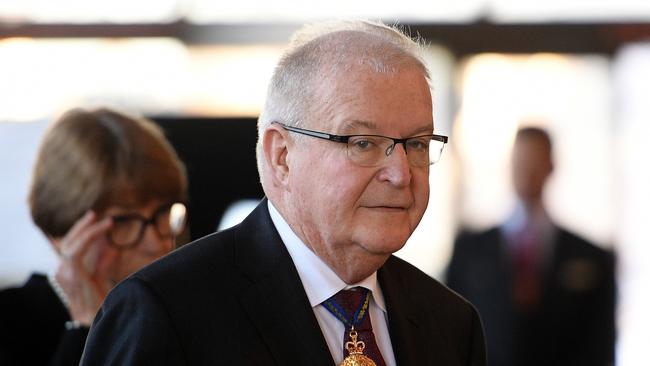
Xu’s solicitor, John Sutton, recalls feeling horrified when the jury handed down its verdict: guilty of sexual assault and indecent assault, not guilty of five remaining charges. “It seemed plain the jury had some kind of disquiet about the fact that this was a homosexual assault allegation, not a heterosexual one,” says Sutton. “They somehow decided that the first incident was an assault but the second one might have been consensual, which made absolutely no sense.” In the dock, Xu felt “shocked, really shocked, and I was a little panicked at that time. I was even more confused when they announced the not-guilty verdicts for the other charges. Because I tend to think about everything logically, and I just couldn’t make any logical sense of that verdict whatsoever.” He was sentenced to two years and four months in prison.
As it turned out, the Chief Justice of NSW, Tom Bathurst, also couldn’t make sense of the verdict when it came before the Court of Criminal Appeal in June last year. Bathurst and two fellow judges took minutes to acquit Xu, describing elements of Ryan’s story as “unlikely” and saying the text messages were arguably consistent with consensual sex that he tried to cover up out of embarrassment after his mother looked at his phone. By then, Xu had already served his prison sentence and was in Villawood Detention Centre, applying for a protection visa on the grounds that being deported to China would expose him to “conversion therapy” for his homosexuality. Last November the visa was granted; he was released after two years in custody.
Today Xu lives in a rented room in Sydney and is back at university. Although he completed his IT degree in prison, he has decided to re-sit the entire course so that he does not have to explain the two-year blank spot in his CV. His relationship with his parents, who spent more than $100,000 on his legal defence and remain hostile to his sexuality, is now distant. The irony is not lost on him that Australia is a place where he had hoped to express his sexuality openly. “Personally, I’ve been having trouble getting close to people,” he says. “I have a huge financial debt to my family, not to mention that the past two years have pretty much rendered my three years at University of Wollongong void. So that’s five years of my life gone.”
In April, child abuse survivors and their supporters were outraged when seven judges of the High Court unanimously acquitted Cardinal George Pell, ruling that the testimony of his accuser contained “compounding improbabilities” that the jury had failed to heed. Hetty Johnston of Bravehearts depicted the decision as an attack on victims and said child sexual assault laws “must be rewritten and fast”. Ingrid Irwin, a Ballarat lawyer who represented abuse survivors at the royal commission, called for the standard of proof in sexual assault cases to be lowered. Writer Malcolm Knox suggested the High Court had undermined the entire rationale for jury verdicts.
In fact, it’s by no means rare for jury decisions in sexual assault cases to be overturned, and the Pell case is just the most high-profile illustration of why this area of the law is so charged. The NSW Government is facing multiple lawsuits from people who claim wrongful prosecution for sex crimes, among them Daniel Jones, a former prison guard whose ex-partner, Sarah-Jane Parkinson, was jailed last year for fabricating rape allegations against him. Actor John Jarratt, acquitted a year ago of 40-year-old rape allegations, has written a book and launched a campaign calling for the identity of the accused in these cases to be suppressed. In February, NSW prosecutors withdrew all 127 charges against seven people accused of ritually abusing and torturing children at a circus school in the Blue Mountains after their lawyers submitted evidence that one of the children admitted making up the allegations.
Rob Hulls, former attorney-general of Victoria, is among a growing number of senior legal figures who question whether the adversarial justice system serves the interests of many sexual abuse survivors. Hulls is now the director of the RMIT Centre for Innovative Justice in Melbourne, which produced a 100-page report for the Federal Government six years ago advocating for alternative approaches such as restorative justice conferencing between offender and victim. But public and political sentiment is moving in the opposite direction. The legal definition of consent is again being revised in many jurisdictions, and last month the Federal Government introduced mandatory prison sentences for federal child sex offences despite warnings that it could lead to a drop in guilty pleas and the jailing of teenagers for “sexting”. Federal Attorney-General Christian Porter says the government is “at war with these predators”.
Hulls, for one, is unconvinced that “war” is the solution. “There’s always a need to improve the criminal justice system and the experience of victims,” he says. “But we need to look at other ways to better meet their needs. Victims want a voice in the process, they want validation and offender accountability. We keep thinking that all they want is longer sentences and that’s just nonsense.”
Names have been changed to comply with court orders.


To join the conversation, please log in. Don't have an account? Register
Join the conversation, you are commenting as Logout